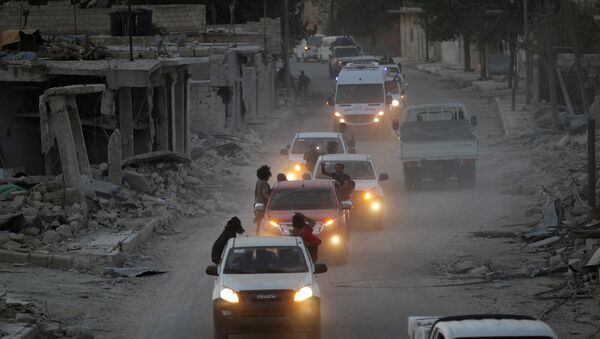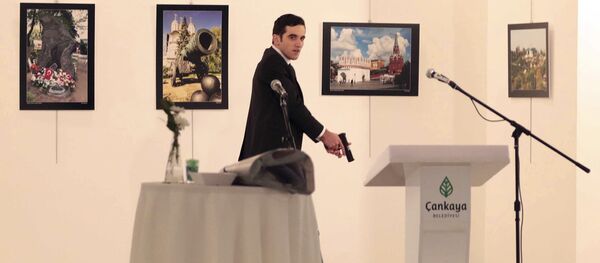On Wednesday, Turkish police announced that thirteen people have been detained in connection with the investigation into Ambassador Karlov's assassination. Police earlier reported that some of those arrested are allegedly linked to the Fethullah Gulen terrorist organization. Karlov was killed Monday after being shot multiple times in the back in what Moscow has classified as an act of terror.
Speaking to Sputnik Turkey, Ismail Hakki Pekin, a career veteran of the Turkish army who served as the head of the Intelligence Department of the Armed Forces' General Staff from 2007-2012, explained that unfortunately, Ankara's Syria policy may have paved the way to the provocation of the ambassador's killing. At the same time, the brazen murder is also a clear sign that Turkey's intelligence and security services aren't operating efficiently, the officer said.
"The first reason that Turkey has become a platform for such loud provocations by radicals is linked to the foreign policy miscalculations made in Ankara. In particular, Turkey's Syrian policy has turned out to be completely mistaken," the intelligence expert explained.
"Secondly," he added, "against the backdrop of growing tensions in relations with the West, Turkey began moving away from Western countries and closer to Russia. Realizing this, the West and the US, which have traditionally considered Turkey to be within its sphere of influence, felt the need to provide Turkey with a 'warning'." Not saying so directly, the officer therefore hinted that foreign intelligence services may have been somehow connected to the Russian official's death.
At the same time, Pekin said, the high-ranking official's death demonstrated that "Turkish intelligence and security systems have collapsed," and have ceased to function effectively.
Ultimately, Pekin warned that Turkey itself "has become a springboard for uncontrolled activity of radical organizations and foreign terrorist groups. As a result, Turkey became the place where jihadists have been able to organize various provocations in the country's territories. Terrorist groups have been established – numerous radical structures, religious movements, which are used to plot terrorist acts."
"Naturally," the Pekin noted, "in the beginning of this path there will be severe difficulties. They have already arisen. The Turkish government made changes to its foreign policy, after which there were explosions in Besiktas and Kayseri; it has stepped up cooperation with Russia, and Ankara witnessed the murder of the Russian ambassador."
On Tuesday, US State Department spokesman John Kirby officially denied US involvement in the assassination of the Russian ambassador, raising concerns about "some of the rhetoric coming out of Turkey with respect to American involvement or support…for this unspeakable assassination yesterday, because of the presence of Mr. Gulen here in the United States."
"We need to let the investigators do their job and we need to let the facts and the evidence take them where it is before we jump to conclusions," Kirby added. "But any notion that the United States was in any way supportive of this or behind this or even indirectly involved s absolutely ridiculous," the official emphasized.
On Tuesday, Turkish Foreign Minister Mevlut Cavusoglu allegedly told Secretary of State John Kerry that Ankara 'knew' that the Fethullah Gulen terrorist organization was behind the ambassador's death. Washington's continued harboring of Gullen, whom Ankara has been accused of plotting the failed Turkish coup plot in July, has led to a significant cooling in Turkish-US relations.




